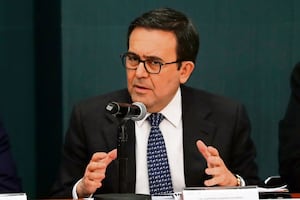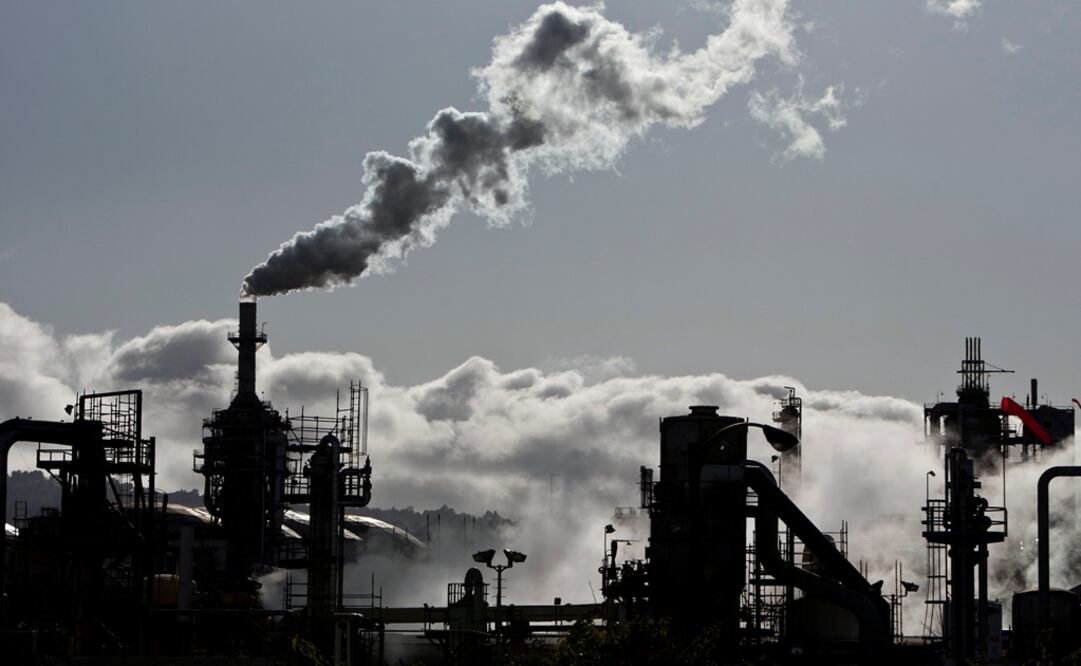Más Información

Autonomía no se hereda, se ejerce y defiende: Leonardo Lomelí; sin ella la formación de nuevas generaciones corre riesgo, dice

Sheinbaum: reforma electoral no busca desaparecer las cosas que han funcionado; rechaza que México vaya hacia un régimen autoritario

Ildefonso Guajardo se deslinda de vínculos con Samuel García Rivero; exfuncionario está relacionado con asesinato de Carlos Manzo

Trump espera que haya elecciones en Venezuela "algún día", dice la Casa Blanca; insiste en que Corina Machado no tiene apoyos
Katowice
, the capital of Poland’s Silesian coal mining district, was the host of the Conference of the Parties ( COP24 ) summit, where four major oil producers, the United States , Russia , Saudi Arabia , and Kuwait , blocked the adoption of a crucial report of the Intergovernmental Panel on Climate Change ( IPCC ), which calls for an urgent action in the next 12 years required to stop global warming exceeding 1.5°C and avoid the worst effects of the phenomenon.
The report, commissioned three years ago at the landmark United Nations COP21 summit in Paris and launched in South Korea last October, warned that the planet is now heading more towards a temperature rise of 3°C rather than 1.5°C.
Keeping with the preferred target would need “ rapid, far-reaching, and unprecedented changes in all aspects of society”, the study stresses.
If global warming was to be kept to 1.5°C this century, then carbon dioxide emissions would have to be reduced by 45% by 2030 , it said.
However, the nations mentioned above blocked the full endorsement of the document last weekend.
Its delegations in Katowice gathered in the “ Spodek ,” a flying-saucer-shaped sports and concert venue built on the site of a former coal mine, objected to the conference “welcoming” the report.
Instead, they wanted to support a much more lukewarm phrase, that the conference would “take note” of the report, which spells out the need to set more ambitious targets to cut fossil fuels .
Despite the frantic efforts of negotiators from the European Union , small island states, developing nations, scientists and non-governmental organizations, the meeting, scheduled to end today, was not able to agree on a compromise wording.
With no consensus , under UN rules the passage of a text had to be dropped .
Many expressed frustration at the outcome, criticizing the “ climate villains ” and the “allied fossil fuel corporations and governments.”
Prominent U.S. scientist Michael Mann described the group of oil producers as an “ axis of evil ” in a tweet.
For its part, Pawel Szypulski , Greenpeace Poland campaigner , remarked that “this COP cannot be called a success without responding to the latest climate science with a strong call to action. The COP24 presidency needs to urgently elevate the issue of ambition.”
Record level
Just prior to the conference in southern Poland, the World Meteorological Organization released a report stating that 2017 atmospheric carbon dioxide levels reached 405 parts per million, a level not seen in nearly five million years.
Nevertheless, in a world facing nationalist trends opposed to multilateral cooperation—symbolized by the critics against the UN migration pact signed this week in Marrakech and the U.S. withdrawal from the 2015 Paris Agreement —the conference failed to tackle the core issues just as previous COP summits held in Denmark , Mexico , South Africa , and Qatar .
By coincidence, in 2013 Poland was also the stage of the COP19 conference, where the right-wing government hosted in Warsaw a parallel meeting with the World Coal Association , called the “ International Coal and Climate Summit .”
Then, Polish officials were accused of delaying and watering down the draft text of one key strand of the talks, which included a timetable to set out national emissions reduction targets before the crunch meeting in Paris.
This month, the Eastern European nation’s pavilion in Katowice was described as “ provocative ” by some environmentalists, because one side has cages of coal with the slogan “ black to green transformation ,” implying coal—the dirtiest fossil fuel —can be used in a way that significantly reduces its carbon print .
Meanwhile, the impact of climate change is a reality for many countries, such as the Small Island Developing States . They know that a temperature increase of 4°C by this century’s end would mean the collapse of the Greenland and West Antarctic ice shaves —where the Florida-size Thwaites Glacier is already melting—and a sea level rise of six to eight meters.
The danger of disappearing under the waters moved the island states to demand in the summit a funding mechanism, to finance and compensate the losses and damages that already occur and are irreversible .
Their delegates also tried to free up climate finance in the form of grants , rather than loans. Their goal was an increase in funding that would help them adapt to and mitigate the effects of climate change .
Developed nations have committed USD $100 billion per year by 2020 , yet there are conditions and holding temperature rise to 1.5°C requires an increase of five times these figure.
The Pacific Islands Forum Secretariat said loans instead of grants re-victimizes nations which have contributed the least to global warming .
Vanuatu’s Foreign Minister
, Ralph Regenvanu , highlighted that “the idea of taxing the fossil fuel industry is an economically sensible approach and a moral approach.”
Before the talks, Vanuatu announced it would explore taking legal action against fossil fuel companies and countries, for their role in causing climate change .
Editing by Sofía Danis
More by Gabriel Moyssen
Noticias según tus intereses
[Publicidad]
[Publicidad]











